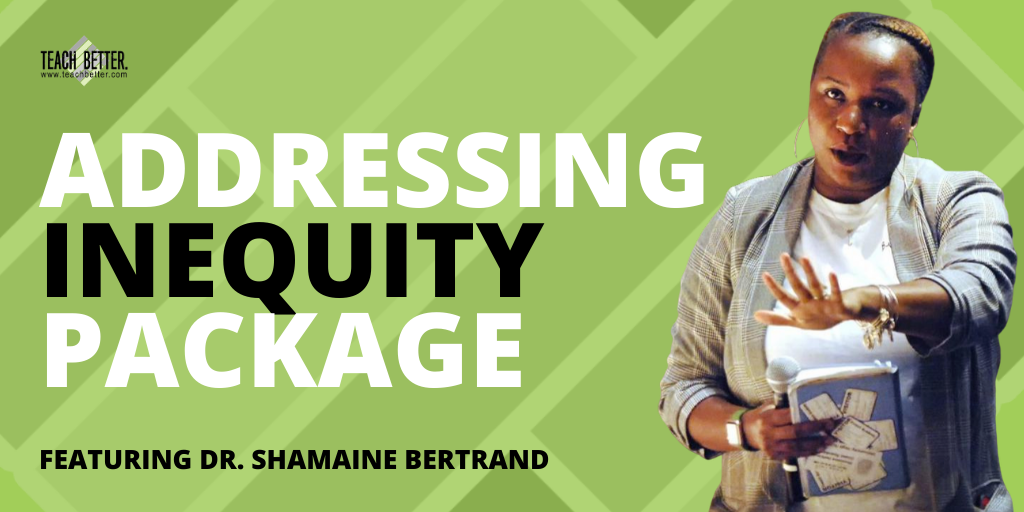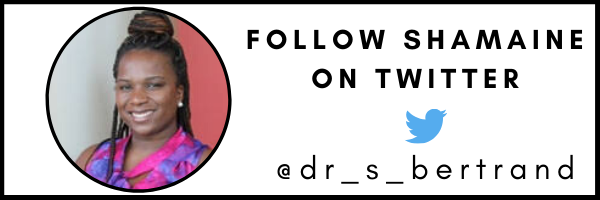TL;DR:
- Preparing for school with the impacts COVID-19 and racism in mind.
- Checking your heart and mind, becoming knowledgeable, and taking action are necessary steps to prepare for school this fall.
Preparing for school with the impacts of COVID-19 and racism in mind is essential. Once students enter their classroom physically or gather virtually this school year, they will have experienced the world differently. They will enter into your schools and classrooms like no other group of students you’ve ever had.
Your students will sit in front of you having lived through what is considered a “monumental moment” in history. The students that you will teach are experiencing the COVID-19 pandemic that stopped all normalcy in society and schooling.
They are sitting or will sit before you having either witnessed or heard of the murders of Breonna Taylor, Ahmaud Arbery, Tony McDade, George Floyd, and Rayshard Brooks. They have either protested or seen the news where globally, people protested to demand justice for unarmed Black lives that were taken and that Black Lives Matter.
Preparing for School Differently This Year with COVID-19 and Racism in Mind
The school year approaches for some and has already began for others. As a teacher, you will need to be prepared to teach students in a way that you have not ever had to do before. Preparation for this school year and the first weeks of school has to look different. As you prep for or begin this school year, you need to consider how will you welcome students into your classrooms. Keeping in mind that students are still experiencing trauma from COVID-19 and anti-Blackness.
Some of you may be wondering: How do you address what they have experienced without re-traumatizing your students? What do you say? How do you build a classroom community that is a healing space, centers equity, is racially inclusive, and promotes anti-racism? There is no single response to these questions. These questions cannot be answered with a Google search.
Hopefully, what you will gain from implementing these suggestions is an opportunity to enter your schools and classrooms prepared to teach students that experienced more than any other group of students that you have ever taught. Share on XSuggestions to Help Prepare for School with COVID-19 and Racism in Mind
I am a teacher educator whose teaching and research are centered in creating equitable and racially inclusive classroom environments. I would like to share three suggestions that will help teachers think through how to prepare or navigate this school year with COVID-19 and the heightened impact of racism in mind.
1. Check your heart and mind.
In order to fully prepare for the upcoming school year, you must first prepare yourself. There is heart and mind work that will need to be done. Dr. Yolanda Sealey-Ruiz refers to this work as ‘the archaeology of the self’ because you will need to undergo an intentional excavation process of yourself. One of the hardest things a person can do is undergo this process of internal work.
You will have to explore your biases, stereotypes, how you present yourself in the world, and why you do the things that you do. You will have to think about why you teach. Why do you want to teach? I would even suggest that you think about the students that you have taught. Who do you tend to not trust? Why? Who do you tend to think is not smart? Why? Who do you tend to like the most? Why? What kind of books do you read in your classroom? Who do you discuss most when you are teaching? Whose story is being told in your classroom? Whose voice is missing in your classroom?
If you choose to dig deeper, consider how do you perpetuate white supremacy. How do you perpetuate inequities? These reflective questions will provide you with a general idea of who you are biased towards, what stereotypes you may have, what internal work needs to be done, and a clear status report of both your heart and mind.
2. Become knowledgeable.
In order to be prepared to enter the classroom physically or virtually, you must be aware of what is going on outside of the classroom. This is going to require you to read a variety of texts, listen to podcasts and the radio, and watch the news.
I previously mentioned that students have experienced and are still experiencing the effects of COVID-19. In addition, they are still processing the state-sanctioned violence and murders that occurred and still occur. In order to facilitate a discussion in your classroom or even know a little bit about what is going on outside of the classroom, you will have to become knowledgeable.
When I speak of becoming knowledgeable, I am suggesting that you learn more about topics such as: racism, white supremacy, intersectionality, social justice, equity, and anti-racism. Teaching for Change, Teaching Tolerance, and the Abolition Teaching Network are just a few organizations that offer resources for students, educators, parents/guardians, and all who want to become knowledgeable.
This is a great starting point. In addition, there are podcasts like the Black Gaze Podcast (I must be honest and say I am the co-host) that is another great resource. Click here to access.
3. Take action.
I have heard so many teachers these past couple of weeks discuss how they do not think they are ready to have conversations in their classrooms about inequities, injustice, and/or racism. While they feel these topics are important, they do not feel like they can address these topics with their students.
I will tell you what I have told teachers countless times: “Nobody has time to wait for you to be ready. Children’s lives are at hand! Take action!”
Again, your students will be entering or have already entered into your classrooms having experienced more than they should have as children and adolescents. You will have to build community and instead of expecting your students to share first.
Be vulnerable and transparent and share how these past five months have been for you. This will humanize you and let your students know that they are not in this alone, that you to have been impacted and you hurt just like they hurt.
Also, you will need to express to them that you would like to co-construct a space for healing and safety for them. Ask your students what they need. Be honest with your students and let them know, you are doing self-work daily, you are becoming knowledgeable, and you are trying to take action so that you can support them through these times.
[scroll down to keep reading]Start Where You Are, Your Students’ Lives are on The Line
These are only suggestions and there is no guarantee that they will work in a week, a month, or a couple of months, but it is a start. Hopefully, what you will gain from implementing these suggestions is an opportunity to enter your schools and classrooms prepared to teach students that experienced more than any other group of students that you have ever taught—students who have experienced both COVID-19 and the heightened impact of racism simultaneously.
While you will make mistakes and sometimes not know what to do, at least you are trying. Start preparing now and if you are currently teaching, start where you are. Your students’ lives are on the line and they need a teacher that is prepared.
About Shamaine Bertrand
Dr. Shamaine Bertrand is an Assistant Professor of Elementary Education in the School of Teaching and Learning at Illinois State University (ISU) in Normal, Illinois. She is co-founder of the Equity & Diversity Cohort for the ISU School of Teaching & Learning. This cohort focuses on preparing elementary education majors during their junior year on how to create equitable learning environments for students who attend urban schools, high-poverty schools, and schools with high populations of Black and Latinx students.
Dr. Bertrand’s research critically examines how to best prepare teacher candidates to teach Black students and students from impoverished backgrounds. Dr. Bertrand publishes peer-reviewed articles and book chapters, conducts a numerous amount of presentations, and facilitates professional development on topics regarding racial equity, poverty, teacher preparation, best practices for teaching racially and socioeconomically diverse students, school-community partnerships, community engagement, culturally responsiveness, and social justice. When Dr. Bertrand is not on-campus or in the community serving others, she is co-hosting the Black Gaze Podcast.


